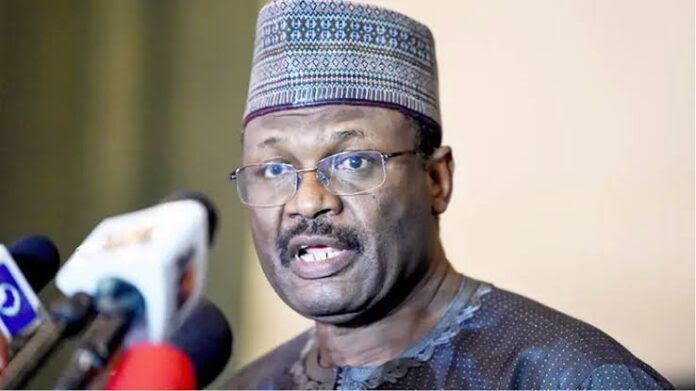By: Joy Musa
In an emerging political scandal, sources close to the corridors of power have revealed an alleged behind-the-scenes deal involving Governor Nyesom Wike of Rivers State and Professor Bashiru Olamilekan, a prominent academic and the newly appointed Chairman of the Independent National Electoral Commission (INEC). The deal, if true, could have serious implications for the integrity of Nigeria’s electoral process and the country’s political landscape.
According to insider reports, Governor Wike is said to have played a pivotal role in influencing President Bola Ahmed Tinubu’s decision to appoint Professor Olamilekan as INEC Chairman. In return, Olamilekan is reportedly offering Wike a promise to back his political ambitions in the 2031 presidential election, or possibly as a vice-presidential candidate, following Tinubu’s anticipated re-election in 2027.
The Alleged Deal: A Bid for Political Power
The alleged agreement between Wike and Olamilekan paints a picture of a high-stakes political maneuver, with both figures seemingly positioning themselves for future power. Sources claim that Olamilekan, who has long been rumored to have political aspirations, sought Wike’s assistance in influencing Tinubu’s decision to replace the former INEC Chairman, Prof. Mahmud Yakubu, with him. In exchange for Wike’s support in securing the appointment, Olamilekan is said to have made a verbal commitment to deliver Wike a significant political role in the post-Tinubu era—either as president or vice-president after the 2027 general election.
Although the details of the alleged agreement remain unconfirmed, the implications are substantial. If true, it suggests that political figures may be brokering deals to secure their future positions by leveraging the control of critical institutions like INEC.
Wike’s Political Calculations
Governor Wike, who has long been a key figure in Nigerian politics, especially in the South-South region, has been building his influence in the run-up to the 2031 elections. His recent alliance with Tinubu has already raised eyebrows, and the alleged deal with Olamilekan is further fueling speculation that Wike is positioning himself for a larger role in the political landscape after the 2027 election cycle.
Wike’s ambition for the 2031 race has been no secret. He has often signaled his intentions to run for higher office, and the alleged promise from Olamilekan could be seen as a calculated move to cement his political future. If the deal materializes, it would set the stage for a potentially heated contest in 2031, with Wike positioning himself as either a presidential or vice-presidential candidate under the backing of influential political players.
Concerns Over Electoral Integrity
The revelation of this alleged arrangement has raised concerns about the integrity of Nigeria’s electoral process. Critics argue that such deals could undermine the independence of INEC, the very institution that is tasked with overseeing free and fair elections. The appointment of Olamilekan, who is seen by some as a political ally of Wike, could be viewed by the public as a way to gain undue influence over future elections, particularly the 2027 and 2031 presidential races.
Transparency and trust in INEC are paramount to ensuring a credible electoral system in Nigeria, and any perception of manipulation or favoritism could lead to widespread skepticism. The timing of Olamilekan’s appointment, coupled with the alleged deal with Wike, only deepens these concerns.
Political Reactions and Public Outrage
Political reactions to the alleged deal have been swift. Opposition parties have called for an immediate investigation into the circumstances surrounding Olamilekan’s appointment and the alleged promises made to Governor Wike. They argue that such deals, if proven true, would constitute a serious abuse of power and a betrayal of the Nigerian people’s trust in the electoral system.
The ruling party, however, has largely remained silent on the matter, with some insiders insisting that Olamilekan was appointed based on his qualifications and expertise. Yet, the swirling rumors and the close ties between Olamilekan and Wike suggest that the appointment might have been influenced by more than just professional merit.
Looking Ahead: What This Means for 2027 and 2031
As the story continues to develop, Nigerians will be watching closely to see whether any further details emerge about the alleged deal between Wike and Olamilekan. If the allegations are proven true, the 2027 and 2031 elections could become even more contentious, with questions over the impartiality of INEC at the forefront.
For now, the focus remains on how President Tinubu and the government will respond to these allegations and whether an investigation into the matter will be launched. One thing is certain: the political maneuverings behind the scenes are likely to play a key role in shaping the future of Nigeria’s leadership and its electoral integrity.







